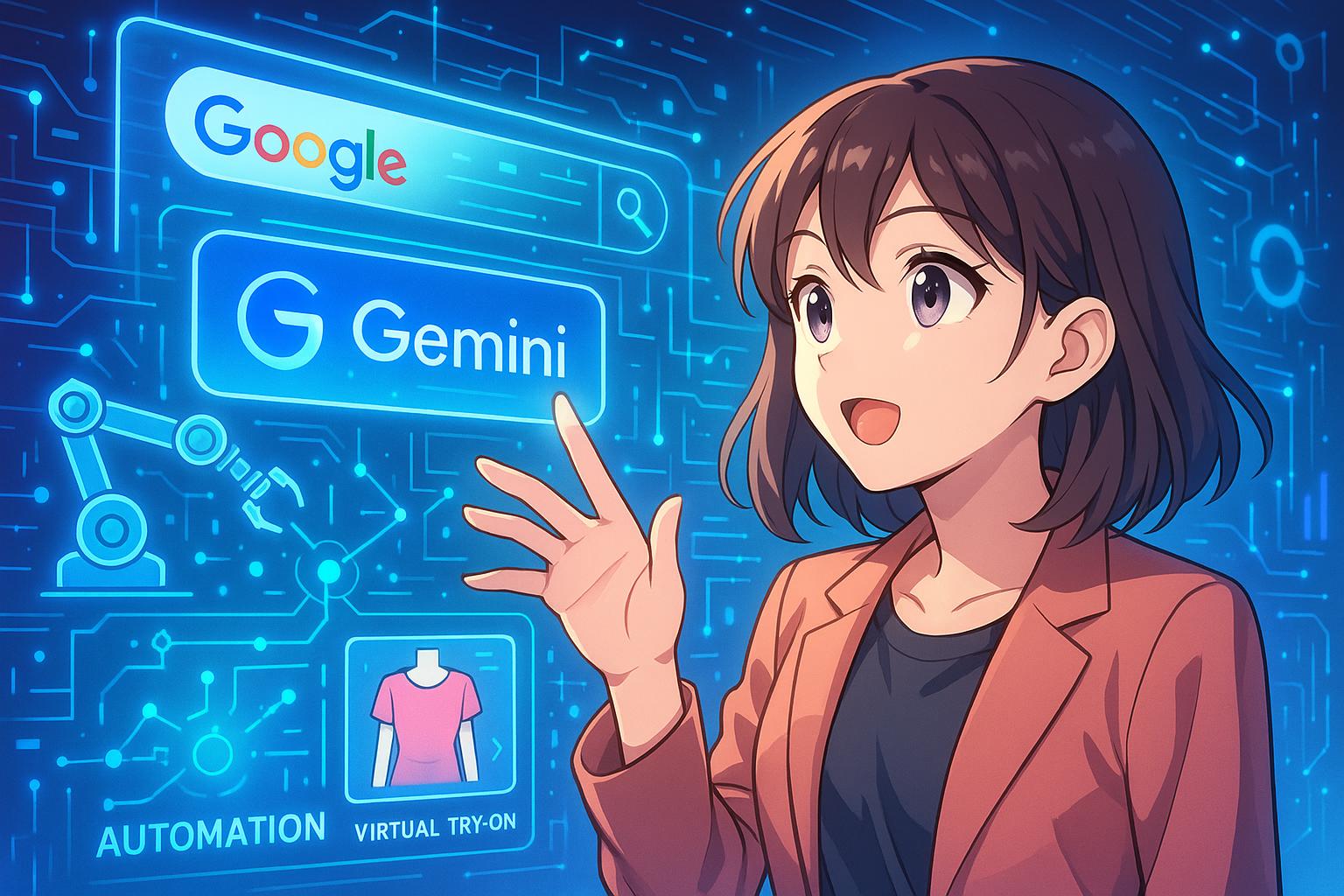At this year’s Google I/O, the tech giant made a decisive shift towards integrating artificial intelligence, redefining the landscape of digital marketing and search. Google presented a dual showcase with its annual developer conference in California alongside Google Marketing Live in Dublin, highlighting the company's ambition to reimagine its services. This initiative comes at a crucial time as competition rises from AI-centric search engines and chatbots like OpenAI’s ChatGPT.
During the events, Google demonstrated a range of advancements, indicative of how quickly the marketing sector is evolving. These updates reveal a reliance on automation and AI, moving beyond traditional tools for targeting and measurement towards more integrated, conversational interfaces. This evolution raises complex questions about the role of human marketers and strategic decision-making, especially as the tools themselves become increasingly opaque.
One of the standout features introduced was the “AI Overviews” in Google Search, replacing conventional blue links with summarised responses generated by Gemini, Google’s large language model. This transition towards a more conversational model means advertisers must adapt to influence broader themes rather than emphasising specific keywords. With sponsored results woven into these summaries, marketers contend with less predictability in ad placements, signalling a shift in how brands strategise their search engine visibility. A Google spokesperson remarked that existing ad quality measures are being applied to these new placements, emphasising a commitment to relevance and quality in the face of these changes.
Furthermore, Google's "AI Max for Search" aims to uncover high-intent queries unpursued by brands. Employing historical account data to inform automated testing of new terms, this tool can be a boon for niche brands, although it demands more from marketers who must sift through performance metrics that may not always provide clear insights. Google maintains that the system introduces new controls for precision, but the complexity of its operations could create challenges, particularly in sectors requiring rigorous oversight, like finance and healthcare.
In the realm of creative production, the introduction of the Asset Studio, powered by Google’s Imagen 4 and Veo 3, enables marketers to generate various ad formats rapidly from text prompts. While this tool promises to streamline the creative process, it raises concerns regarding the homogeneity of brand assets, with outputs potentially lacking distinctiveness unless closely managed by human oversight. Google's assertion that the tool allows marketers a degree of control during the output refinement process indicates a recognition of these challenges.
Moreover, innovations in shopping features, such as an improved virtual try-on capability for clothing, highlight the growing intersection of AI and e-commerce. Users can now upload their own photos for a personalised shopping experience, moving away from previous models reliant on generic representations. Google’s vast Shopping Graph, encompassing over 50 billion listings, amplifies these efforts, although the complexity of synchronising product data and inventory remains a hurdle for less technologically equipped brands.
As Google transitions towards a system that enhances automation—future-looking updates including advanced AI-powered agents like Project Mariner and Project Astra aim to facilitate user tasks more effectively—the question arises around the sustainability of these strategies. The company is exploring new monetisation avenues, such as tiered subscriptions for enhanced AI features. However, as sentiment in the investor community remains largely positive, the long-term feasibility of these AI tools relies heavily on their effectiveness and the public’s confidence in navigating a landscape increasingly dominated by such technologies.
Ultimately, the message emerging from Google I/O 2025 is a clarion call for marketers: as tools become more sophisticated, the intent guiding their use will determine success. While automation offers efficiency, strategy and nuanced understanding remain imperative. Google’s ambition is not merely to serve as a platform but to become a comprehensive operating system for modern marketing, one that invites brands to rethink their approach in an increasingly AI-driven world.
Reference Map:
- Paragraph 1 – [1], [2]
- Paragraph 2 – [1], [2], [5]
- Paragraph 3 – [1], [5]
- Paragraph 4 – [1], [2], [3]
- Paragraph 5 – [1], [4]
- Paragraph 6 – [1], [2], [3]
- Paragraph 7 – [1], [3], [5]
- Paragraph 8 – [1], [7]
- Paragraph 9 – [1], [2]
Source: Noah Wire Services
